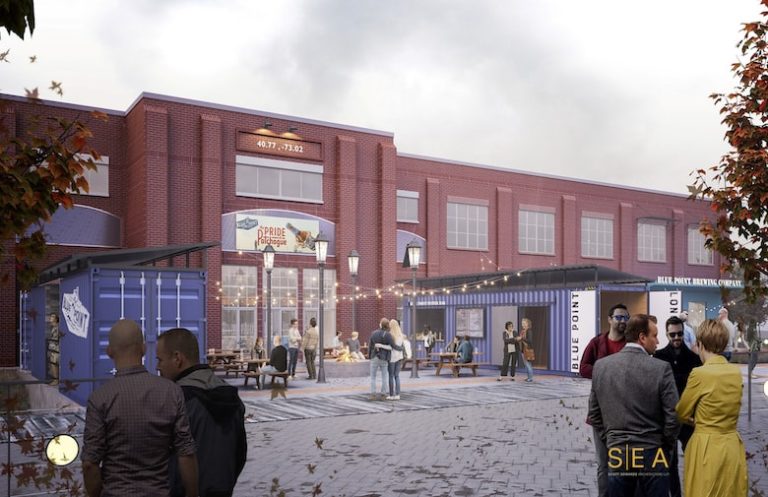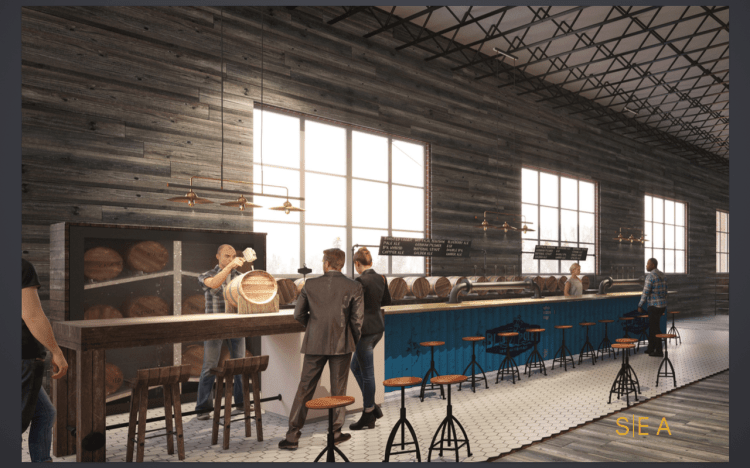
AB InBev-owned Blue Point Brewing will soon be opening the doors to its pricey new facility on Long Island…and it looks like that “Big Beer” money was put to good use.
Here’s the deal…
Housed on the former Briarcliffe College campus in downtown Patchogue, NY, Blue Point’s new 54,000-square-foot brewery, which began producing beer at the still under construction location last spring will officially open its doors to the public on April 17th.
Blue Point President Jenna Lally told Newsday the new brewery which cost a “little bit under” $40 million is a dramatic upgrade over their original River Avenue location…
“We’re six times the size in terms of capacity right now, with the ability to grow to 12 times,” she said. “The great part is that we can package way more beer than we can brew. It’s just a question of when we expand.”
“At the old brewhouse we might be able to do three brews in a day, where we can do eight or nine at this brewery,” Blue Point’s brewmaster, Mike Stoneburg added.

Retaining much of Briarcliffe College’s original architectural character on its exterior, Blue Point’s new home has undergone massive changes inside…
According to Newsday”the beer maker removed roughly 75 percent of the former college’s second floor to make room for grain milling, rows of towering fermentation tanks, and its canning and bottling packaging system.”
Blue Point’s new campus will also feature an outdoor beer garden, a tasting room with 30 taps, and a beer-centric restaurant where visitors “will be able to look into the main production area as well as at Patchogue Lake.”
There will also be an indoor music stage, a gift shop and because this is Long Island, a fresh-oyster bar.
One of the region’s earliest craft brewers, Blue Point was founded by Mark Burford and Peter Cotter in 1998. And it was Long Island’s biggest craft brewing operation when AB InBev acquired it for $24 million in 2014.
Since that acquisition, Blue Point has significantly boosted its beer production, updated its logo and increased its distribution from 15 to all 50 states and entered into international markets.
 American Craft Beer The Best Craft Beer, Breweries, Bars, Brewpubs, Beer Stores, And Restaurants Serving Serious Beer.
American Craft Beer The Best Craft Beer, Breweries, Bars, Brewpubs, Beer Stores, And Restaurants Serving Serious Beer.
